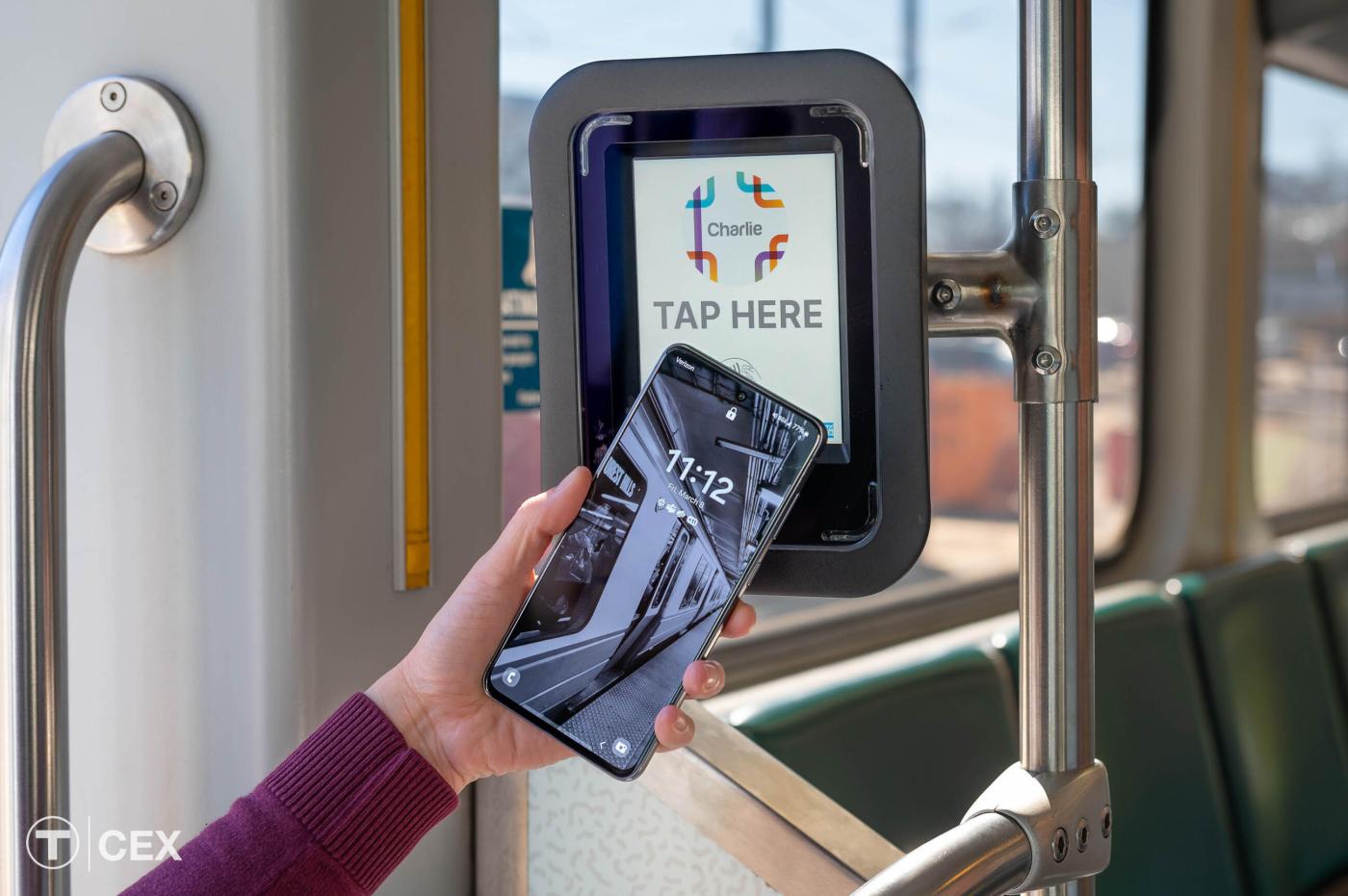
MBTA contactless payment will become reality in August, costing nearly $1 billion
State transportation officials are banking on riders saving time on subways and buses when the MBTA’s long-awaited and pricey contactless payment system — bearing a cost of roughly $1 billion — rolls out next month.
Riders boarding the beleaguered transportation network’s buses, Green Line and Mattapan Line trolleys will be able to take advantage of the “more convenient and modernized” system starting Aug. 1.
Forgot your CharlieCard at home? No worries.
Under the “one-step option for pay-as-you-go travel,” riders can tap their credit/debit card, phone, or watch against the vehicles to pay for fares instead of purchasing and reloading a CharlieCard.
“Transitioning to this contactless system is a part of the next generation of transportation that our riders deserve,” Transportation Secretary and CEO Monica Tibbits-Nutt said in a statement. “This will allow them to save time and make it easier for riders and travelers to pay and board as they use the system.”
Officials announced the system is set for an August implementation on Tuesday, hours after a maintenance vehicle derailed on the Red Line at Park Street, forcing the agency to bring out shuttle buses during a hot morning rush hour for commuters.
When the automated payment system goes into effect, it will mean the MBTA is catching up with major transit agencies nationwide. New York, Denver, Chicago, Baltimore, and San Fransisco already have the option of some sort.
The system will expand to the commuter rail in the spring of 2026 and include the state’s new low-income rider program.
Traditional cash and non-tap card options will remain available after the contactless system goes live. The CharlieCard system is also due for an update by 2025 when a mobile app is set to launch.
“While onboard buses, Green Line trolleys, and Mattapan Line trolleys, riders should be mindful of the location of the tappable fare readers near the vehicles’ doors,” officials stated in a release. “To avoid the possibility of accidental taps and charges of their contactless credit or debit cards, riders are encouraged to hold their purses, bags, and backpacks away from the contactless readers.
The advancement has taken more time and money than officials initially anticipated.
Officials secured a $723.3-million contract with California-based Cubic Transportation Systems in 2017 for the upgrade, aimed at replacing the CharlieCard system.
The initial contract was amended due to technological glitches and other issues, pushing implementation from 2021 to this year with an expected cost of roughly $935.4 million.
MBTA General Manager and CEO Philip Eng, in a statement, said he believes contactless payment will “greatly enhance the experience of using mass transit” if implementation goes as smoothly as it has at “other transit properties.”
“Last year this project needed a course correction and I’m proud of the progress made to deliver this important amenity for our riders, bringing our payment system for our bus and subway system into the 21st century,” Eng said. “This lays the groundwork for the fare payment system of the future, incorporating our fare structure.”


